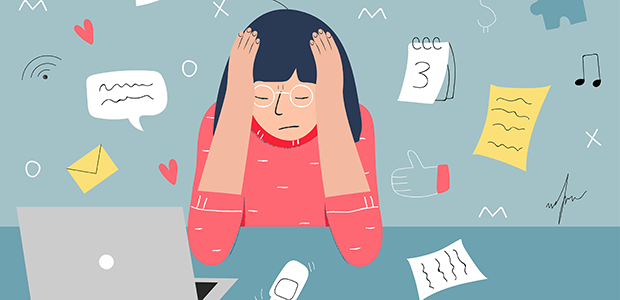
How to help your team manage stress to stay productive
Managing your employees’ stress levels is crucial for ensuring a productive and healthy workplace environment. Employee stress is a common issue that affects job satisfaction, motivation and overall productivity.
Organisations should prioritise stress management as an essential aspect of their employee wellbeing initiatives, implementing strategies to support employees’ mental health and work-life balance, as well as fostering a positive work culture that promotes overall wellbeing.
Employees from Koa Health share their insight into how to help your team manage stress to stay productive.
Nicola Hemmings, Head of Workplace Psychology, Koa Health says: “Stress can be contagious. Just observing someone else going through a stressful situation can cause our bodies to release the stress hormone cortisol. In some instances, stress can temporarily increase productivity for individual tasks. However, prolonged exposure reduces individual productivity and often has a damaging effect on a team’s collective productivity, which has a knock-on impact on company performance.
"There are several stress management techniques team leaders can use at both an individual and team level to support productivity. One example is encouraging teams to use short stretches of free time between tasks to practise mindful awareness. Spending a few minutes observing our thoughts doesn’t just help us relax, it also helps us hone observational skills which are key for creativity. In addition, it’s important to motivate staff to celebrate successes and publicly acknowledge and call out co-workers who have helped them. Both micro-interventions can be encouraged and modelled by senior leadership to build a supportive culture.
"To help mitigate employee stress and boost productivity, I urge employers to provide a set of comprehensive mental health resources targeted at the individual, team, leader and organisational level. This benefits employees and has a significant ripple effect on organisations and outcomes. A workforce that prioritises mental wellbeing is more likely to experience increased productivity, higher morale, reduced absenteeism, and lower staff turnover”.
Strategies for handling stressful thoughts at work
Sophie Dix, Neuroscientist and VP of Content, Koa Health explains: “Half of workers in Britain (52%) say they feel “very” or “fairly” stressed at work. Stress at work can leave us feeling worried, miserable and overwhelmed and can easily creep into life outside of work.
"Don’t let stress keep building up throughout your day. When you’re feeling overwhelmed or stressed, take action.
"Take time to consider your thoughts and feelings. We tend to try to ignore things we’d rather not acknowledge, but that can make the thoughts that are stressing us linger. Instead, let your thoughts and feelings come and go, reminding yourself that they’re temporary. Jotting down stressful thoughts on paper or on your phone can create space and perspective, decreasing their intensity.
"Another way to handle your stress in short order is with a few minutes of deep breathing to relax your muscles. Mindful breathing and relaxation techniques can assist you in centring yourself and alleviating anxious thoughts, regardless of whether you have a few minutes or a half-hour to spend”.

